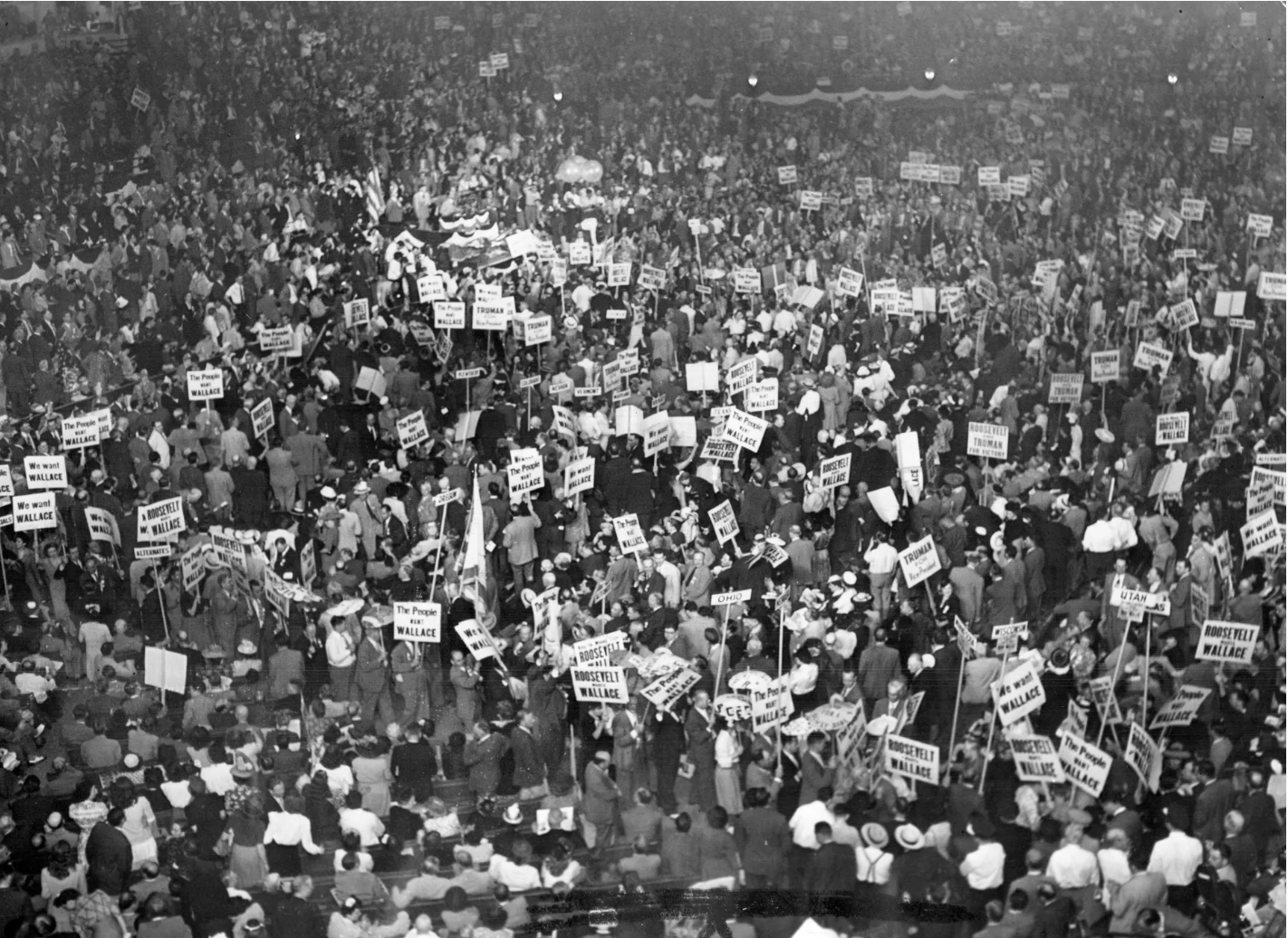
1944
chicago, illinois:
a pivotal Democratic National Convention
A betrayal at the heart of the Democratic Party. A turning point that reshaped the world, and inspired Danny Rocco to write a groundbreaking play.
At the 1944 Democratic National Convention, in a moment of internal crisis, party leaders made a fateful, backroom decision that changed the course of history: they ousted incumbent Vice President Henry Wallace, a progressive with mass public support, and installed Harry S. Truman, a little-known moderate, to succeed FDR after his death.
It was a calculated move, made in fear of Wallace’s politics and his popularity.
The consequences were immediate and seismic: FDR died just nine months later. Three months after that, Truman dropped atomic bombs on Hiroshima and Nagasaki, ushering in the nuclear age and cementing a new world order.
The aftershocks continue to reverberate: The Democratic Party has wrestled with its ideological identity ever since, torn between its progressive ambitions and centrist pragmatism. The sidelining of Wallace marked not just a personnel shift, but a philosophical one from which the left has never fully recovered.
The question still hangs in the air: what might have happened - what could have happened - if Wallace had been allowed to lead?

